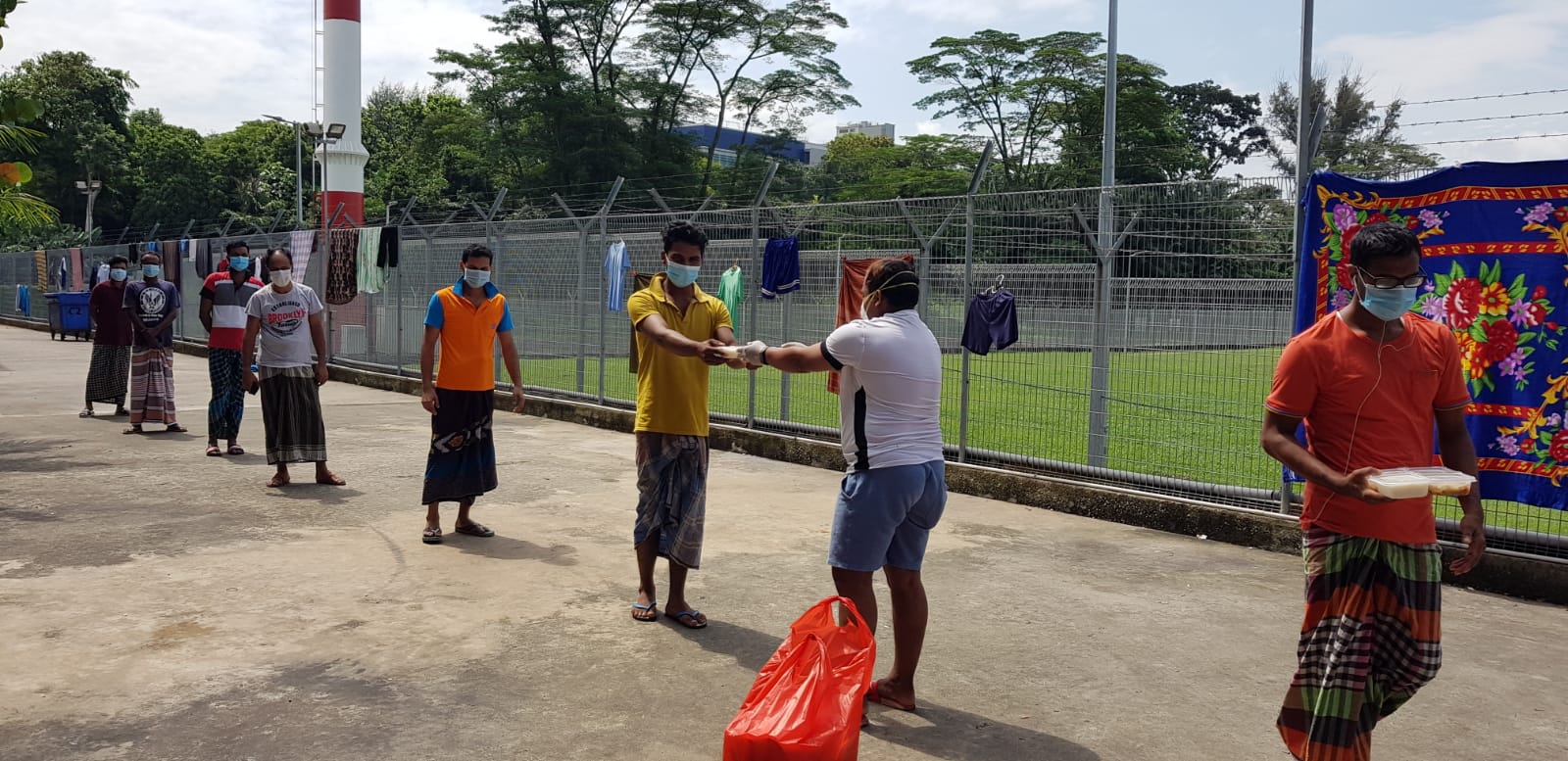
When COVID-19 broke out in Singapore in early 2020, the country shut down. Migrant workers, who make up over 20% of the population, generally live in dormitories. When the country went into lockdown, these workers were isolated in their small rooms with limited access to resources and a constant fear of contracting the virus in close quarters.
Activists have called it Singapore’s greatest humanitarian crisis, and journalists quickly jumped into gear to shine a light on the horrible conditions these workers were in.
Singaporean journalists Toh Ee Ming and Kelly Ng were among the journalists reporting on the topic.
“I wanted to see how I could add to the discourse, but there was an oversaturation of information. We were trying to find a new way to add to the story. At the time, there wasn’t much information about the mental health aspect,” said Ee Ming. “We wanted to show the ways that the migrant workers were coping, including some of the more lighthearted ways that they were coping as well besides the bleak conditions.”
Their story, which documents the stories of migrant workers living in dormitories in Singapore during COVID-19, was published in Southeast Asia Globe in May. It focuses specifically on the psychological toll of isolation and was selected as one of the top stories shared in October in the Global Health Crisis Reporting Forum, a project co-created by IJNet and our parent organization, the International Center for Journalists.

“This story was first and foremost a human story addressing a very real problem only exacerbated by the pandemic. The variety of different angles the reporters covered, including the voices of the migrants themselves, plus the stunning photographs, made it a compelling long-form report,” said ICFJ Director of Community Engagement Stella Roque.
Both reporters have covered migrant workers in the past, which allowed them to utilize already established contacts to get in touch with workers in the dormitories where communication can be difficult. The writers also used social media to connect with the migrant worker community that, like others, has turned to technology to keep in touch.
“Because Singapore was on lockdown, we could only communicate with them through texting or calling, which I guess is a little bit regretful in some part,” said Ng. “You really wish you could meet face-to-face.”
by Chanté Russell, International Journalists’ Network
Related posts
Magazine Training International’s mission is to encourage, strengthen, and provide training and resources to Christian magazine publishers as they seek to build the church and reach their societies for Christ.

